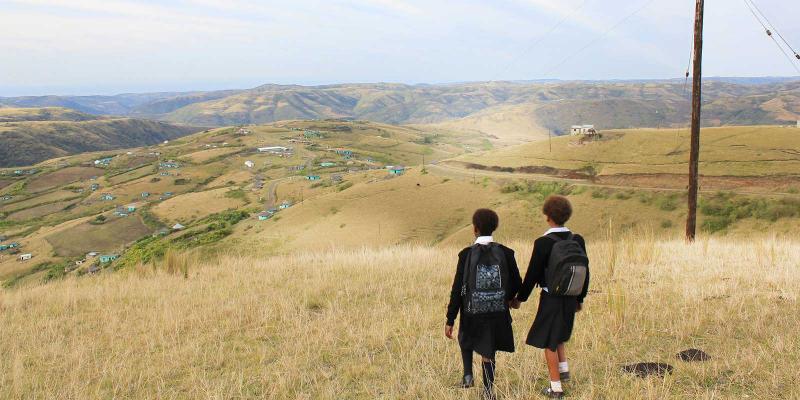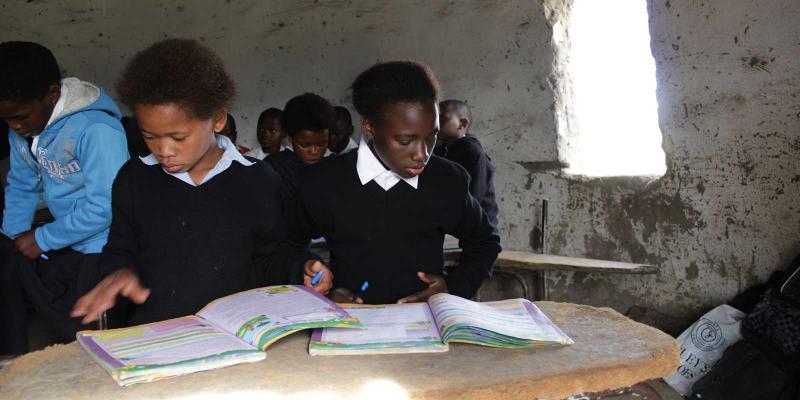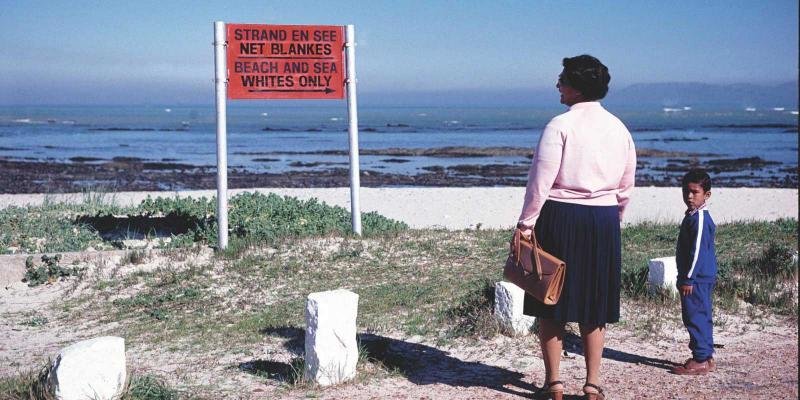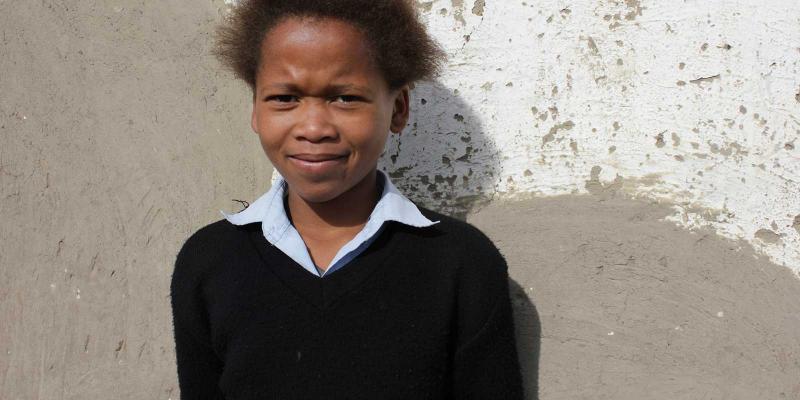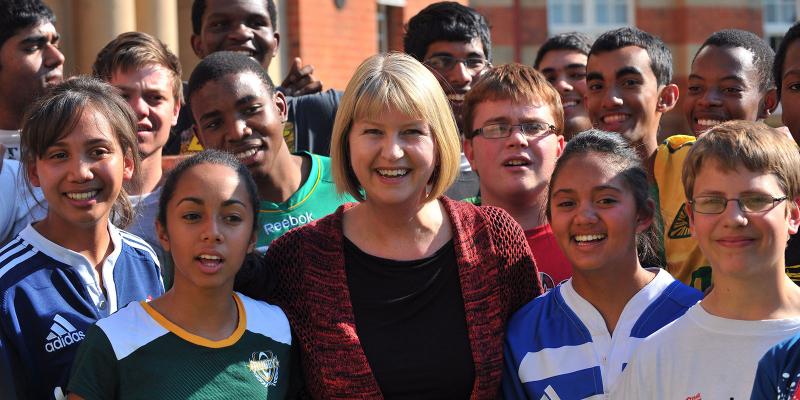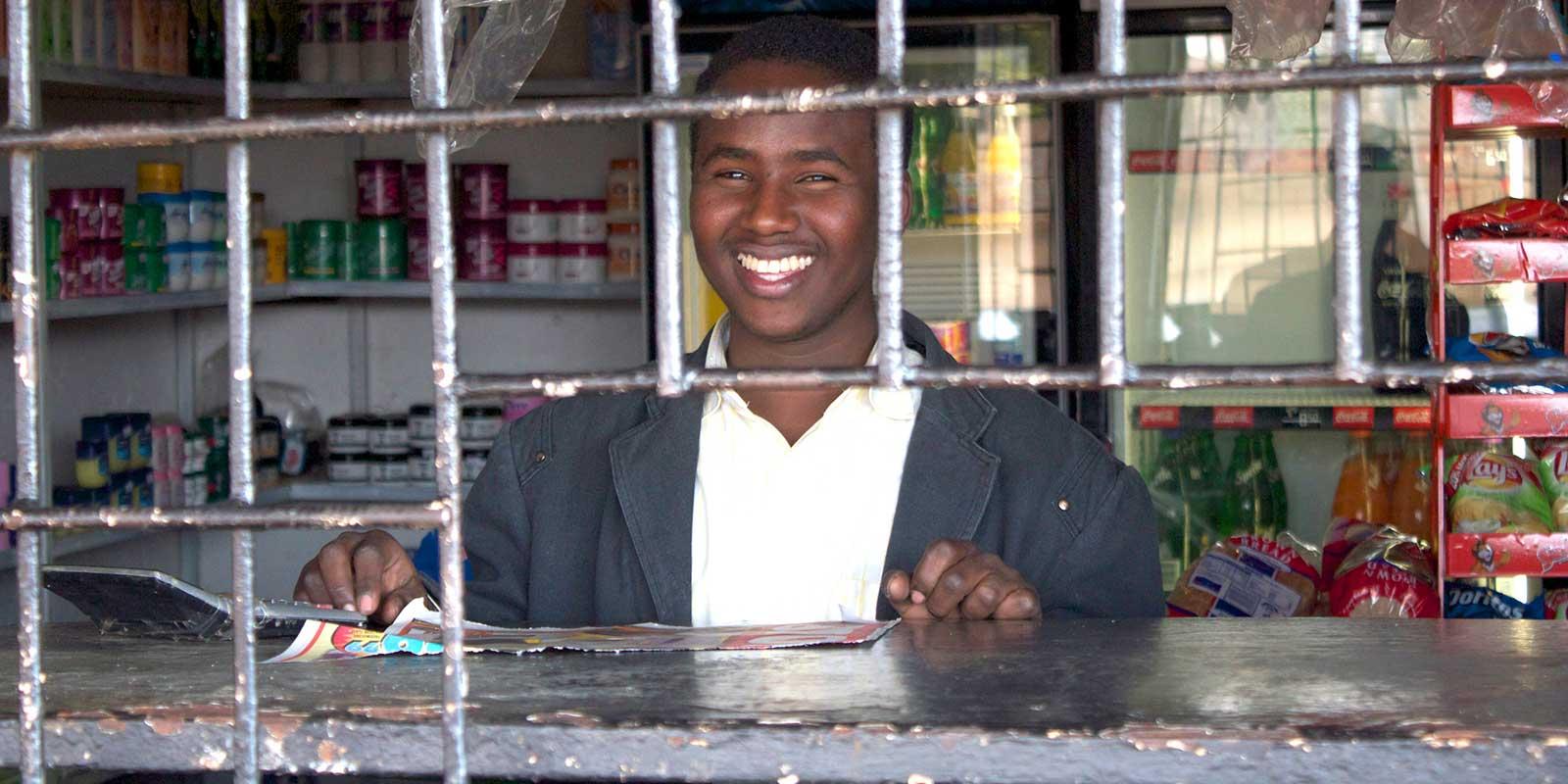
Shaafi works extra in a shop owned by another Somali refugee. He keeps his only possessions in a small suitcase. He opens the suitcase five times a day to take out his Koran and to pray to Allah. His prayers are for his family and his own future.
When Shaafi’s home in Somalia was
bombed he fled. He travelled through four countries before he reached South Africa. There he was considered ‘illegal’ and was arrested. Ann Skelton and Lawyers for Human Rights took his and other refugee children’s case to the High Court, to fight for their rights to be ‘legal’.
Shaafi’s home in the Somali capital Mogadishu was bombed In September 2010. His father was killed and his mother and brothers fled in different directions in the panic that followed. Countless houses were shelled that day and soldiers from the militia groups shot many people. Shaafi joined a group of survivors who fled for their lives. He left his hometown with only the clothes he stood up in, not knowing if his mother was dead or alive.
For weeks, Shaafi and the other refugees travelled on foot and by car, making their way to South Africa, hoping for a life in that country.
Looking for help
“Other Somalis advised me to go to Lawyers for Human Rights to ask for help to get my permit. The lawyer was kind to me and explained that the South African government had a law that protects refugee children like me. Then they took me to the Department of Social Development. The adults at this place refused to help me and said that there was no law to force them to help foreign, refugee children.”
The government did not know its own country’s laws. South Africa has signed the International Convention on the Rights of the Child that protects refugee children’s rights to asylum processes. Ann Skelton decided to help Shaafi. She knew that South Africa had new laws to protect children, because she had been at the head of writing these laws. She knew that Shaafi had the right to go to school, get treatment at a hospital when he needed it and be protected from harassment by police and other adults.
Shaafi is ‘legal’
Shaafi is now a ‘legal’ person with rights. He has an asylum seeker’s permit. But this is not enough. On a cold winter afternoon, Ann Skelton drives to the Mamelodi suburb where Shaafi works. She risks being robbed and even risks her life by sitting with him next to the corner shop, to find out what Shaafi wants for his future. She wants to help him build his life and realise his dreams.
“There is something I want to tell you,” he says, “I recently met another boy who fled from my hometown in Somalia where the war is still continuing. He told me that my younger brother was alive. The soldiers had taken him to become a soldier like them in their war. He said that no one had seen or heard from my mother.”
Shaafi,17
Loves: Reading the Koran and praying for peace in life.
Hates: War.
Looks up to: Allah.
Wants to be: Successful in life.
Dream: To find my mother.
Text: Marlene Winberg
Photos: Satsiri Winberg
Related stories
Långgatan 13, 647 30, Mariefred, Sweden
Phone: +46-159-129 00 • info@worldschildrensprize.org
© 2020 World’s Children’s Prize Foundation. All rights reserved. WORLD'S CHILDREN'S PRIZE®, the Foundation's logo, WORLD'S CHILDREN'S PRIZE FOR THE RIGHTS OF THE CHILD®, WORLD'S CHILDREN'S PARLIAMENT®, WORLD'S CHILDREN'S OMBUDSMAN®, WORLD'S CHILDREN'S PRESS CONFERENCE® and YOU ME EQUAL RIGHTS are service marks of the Foundation.



